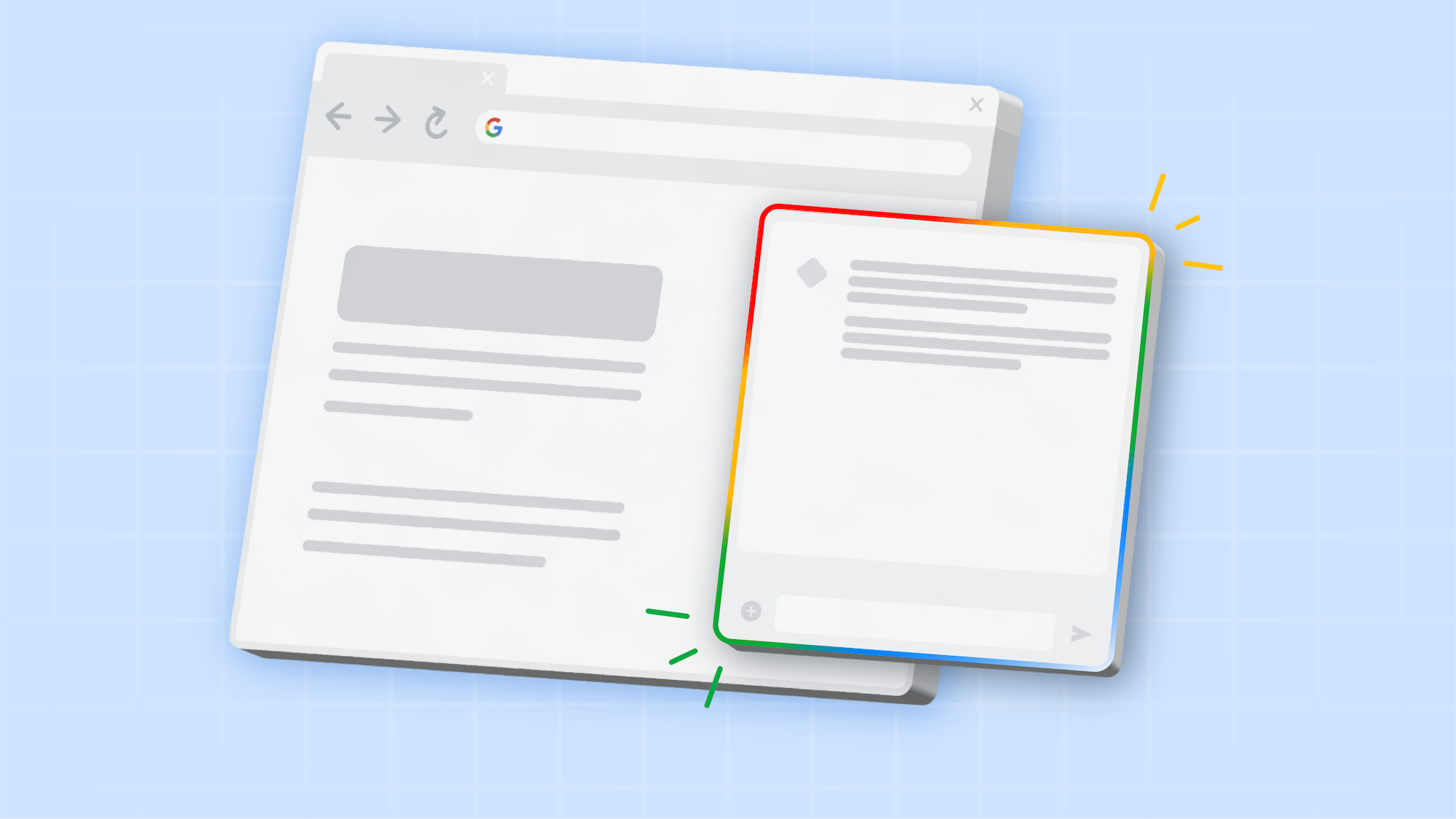
AI with Chrome
Welcome to the next era of the web with AI. See how AI can make it easier for developers to build powerful experiences on the web.
Built-in AI
With built-in AI, your browser provides and manages foundation and expert models. In Chrome, that includes Gemini Nano.
Built-in AI
Your website or web application can perform AI-powered tasks, using browser managed AI models and APIs.
Get started
Learn the requirements to start building features and applications with built-in AI.
Available APIs
Review the APIs and their availability status to use with Gemini Nano in Chrome.
Dive into the APIs
Join the origin trials and start using these APIs in production.
Writer API
Create new content that conforms to a specified writing task.
Rewriter API
Refine existing text by making it longer or shorter, or changing the tone.
Translator API
Live translate text in the browser using local AI models. Help users contribute in their first language.
Language Detector API
Identify the language used in any given text with the Language Detector API.
Summarizer API
Generate different types of summaries in varied lengths and formats, such as sentences, paragraphs, bullet point lists, and more.
Prompt API
Discover the infinite possibilities of the Prompt API.
Build with AI
Solve for your use case.
Hybrid AI prompts with Firebase AI Logic
Use Firebase AI Logic with your AI apps for a cloud fallback for client-side AI.
Summarize in small context windows
Discover the summary of summaries technique to distill complex content client-side.
Session management with the Prompt API
This guide introduces best practices for session management with the language model.
Evaluate product reviews
Use server-side generative AI to evaluate reviews. Inference occurs on a server.
Help users share useful feedback
Explore on-device AI solutions to help users write insightful reviews.
On-device translation with AI
Empower global customer support with the Translator API.
Extensions and AI
Enhance the browsing experience with browser customization and control over web content. Build next-level extensions with AI.
Best practices
Cache AI models
Help your applications launch faster by caching the the model on-device.
Stream LLM responses
Understand what streaming is and how it works with AI and LLMs.
Render LLM responses
Use these frontend best practices to display streamed responses from Gemini.
Debug Gemini Nano
Use a special Chrome-internal page to see debugging details on prompts to Gemini Nano.
Case studies
AI and Gemini Nano news
Developer productivity
DevTools AI assistance
Chat with Gemini in DevTools. Conversations you start from this panel have context about technical details of the page you're inspecting.
AI assistance for styling
Use the AI assistance panel to understand a website's overall layout, specific element styles and to get AI-generated fixes for CSS bugs.
Use AI assistance
Check out five ways to make styling your page easier, from understanding layouts to fixing airplanes.
Console insights in DevTools
Use the Console to view and debug the results of on-device AI.
Web AI at I/O
Harnass the power of Gemini Nano in Chrome with our built-in AI APIs.
Practical built-in AI with Gemini Nano in Chrome
Learn how to use built-in AI APIs landing in Chrome, to enable your web app to translate, summarize, write, and rewrite content for your users. We discuss how to build hybrid workloads, and look to the future ofbuilt-in AI in the browser.
Chrome Extensions with Gemini
You can built client-side and cloud AI to optimize the web and browser for your needs and the needs of your customers.
Web AI use cases and strategies in the real world
With libraries like MediaPipe, LiteRT, and Transformers.js, and cutting-edge Web APIs like WebAssembly and WebGPU, you can build incredible AI-driven experiences.
WebGPU
Support your AI efforts with WebGPU, a web graphics API that offers access to more advanced GPU features.
What's New in WebGPU
Disover the latest updates to WebGPU in Chrome.
Overview
Discover WebGPU in Chrome and get first-class support for general computations on the GPU.
Access the GPU
Learn how to access the GPU with WebGPU.
Web AI model testing in Google Colab
Learn how to test client-side, browser-based AI models in true browser environments.
Troubleshooting tips and fixes
Learn why WebGPU may be inoperable or not working as expected in Chrome, and how to fix it..
API reference
Find the API reference on MDN.
WebAssembly
Enable high-performance applications on web pages with Chrome
WebAssembly optimizations for AI inference
Learn about improvements to WebAssembly for tasks commonly used in AI inference.
TensorFlow.js Wasm backend
Learn about the TensorFlow.js Wasm backend WASM backend and how it uses the XNNPACK library for optimized implementation of neural network operators.
ONNX Runtime Web for WebAssembly
Learn how to deploy the ONNX Runtime Web in a production environment and which WebAssembly binary file(s) to include in the application.
Introducing web AI
What is AI?
Understand the basics and definitions of the various emerging technologies, often referred to as AI.
Ethics and AI
As web practitioners, it's critical that we build new technology thoughtfully and responsibly.
Improve client-side AI
Discover techniques to use client-side AI, which offers benefits such as low latency, reduced server-side costs, increased user privacy, and more.














